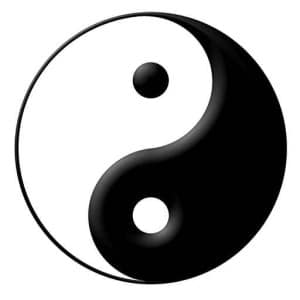Free shipping
No products in shopping cart
Continue shopping
Geeenpeace, Avaaz, Doctors Without Borders, Bread for the World. Organizations that have one thing in common: They have a mission to contribute to the well-being of life on earth. Greenpeace is not fighting against the whalers but protecting the whales wherever necessary. Avaaz does not accuse, but educates and promotes global communication and democratization. Doctors without Borders also help other people in emergency areas and at best fight against blood loss, heart failure or other life-threatening symptoms, but never against the forces that have turned the emergency areas into such areas.
This differentiation could be described as splitting hairs, but it is far more than that: it is decisive for whether we live in war or peace.
First of all, it’s about the word fight. A word that always requires an opponent. Who or what are my opponents? As long as it concerns my own internal matters, it is still harmless. I fight against my laziness. I fight against my arrogance. I fight for recognition. I fight for my children. But here, too, we have to ask ourselves: Who are my opponents? In the first two cases, these are my traits. In the last two examples, it is other people. Maybe my boss or my colleagues, my parents or schoolmates. If you fight for your children, your opponents may be the other parent, the teachers or the youth welfare office.
As long as I have opponents, I am inevitably at war. In doing so, I not only support the duality of war and peace on a global level of consciousness, but also bring myself into a state of separation from all that is. I feel this state most clearly when I find it difficult to look, think and act with my heart.
I don’t want to campaign against war, corruption, child abuse or the ever-increasing threat of electrosmog. All phenomena are expressions of duality. Day and night. Mountain and valley. Hot and cold. Rich and poor. War and peace.
No one would think of trying to fight the night or claiming the mountain without the valley. Dualities always have the property of ultimately balancing each other out. We are familiar with the image of yin and yang.
What does this mean for me? When I am in my state of being, there is neither war nor peace. I could describe my state of being as peaceful, but that would leave me in the war-peace duality game. That’s why I prefer to say: I’m balanced. In balance. No feelings that move me, no thoughts that occupy me. Relaxed. What does this have to do with war or peace? Nothing. So I am wary of using these words because they give further energy to this duality.
What if this duality of war and peace were simply no longer given any energy? No one would then have to maintain peace – with weapons if necessary. The “blue helmets” illustrate how seamlessly the boundary between war and peace runs. The United Nations peacekeepers would be indistinguishable from war troops if they didn’t have the blue helmet. They belong to a military organization that would kill people to keep the peace. As surprising as it may seem that they were honoured with the Nobel Peace Prize in 1988, it becomes logical for people who have recognized that this is a manifestation within the interplay of forces between two poles.
A world without war and peace? I’m not fooling myself! They may exist, but this world will always be a world of dualities. Pleasant and unpleasant, unbearable and heavenly. We will continue to love and be afraid in the future, oscillating between closeness and distance in relationships, because all of this is life. An Indian sage once told me: “Creation is God’s sports field. Here he can perceive, experience and feel himself. Without this three-dimensional world of matter, it would be unthinkable.
So I realize that there is nothing to fight or fight for, because as soon as I fight, I appoint opponents and thus add fuel to the fire of war and peace. This is not to say that I am mutating into an anemic neutral. On the contrary. I can already use my energy for a good cause and be enthusiastic about it, for example to support all those people who suffer from electrosmog and other environmental pollution.
But I will never go against the mobile communications industry, because in doing so I would be marking an opponent and becoming a player in a game in which there can only be a few winners and countless losers.
Richard Neubersch
Do you have any thoughts on this topic or would you like to comment on my opinion? Please use the comment function!
A home is more than just a place to live. It is a retreat where we can relax, recharge our batteries and spend time with our loved ones. A harmonious living environment plays a decisive role in our well-being and health. But how can we achieve this harmony? This is where the products from Swiss Harmony come into play.
In a world increasingly shaped by electrosmog, radiation, and other negative environmental influences, finding solutions that improve both personal well-being and ecological impact has become more important than ever. This is where Swiss Harmony comes in: we offer products designed to harmonize your environment without adding extra burdens to you or the environment.
Electromagnetic fields (EMF) are an invisible threat increasingly permeating our daily lives. These fields disrupt the natural cellular communication in our bodies because they do not originate from nature and are foreign to our organisms. Unlike an obvious poisoning, they leave no visible traces, making it almost impossible to recognize them as the cause of intercellular malfunctions.